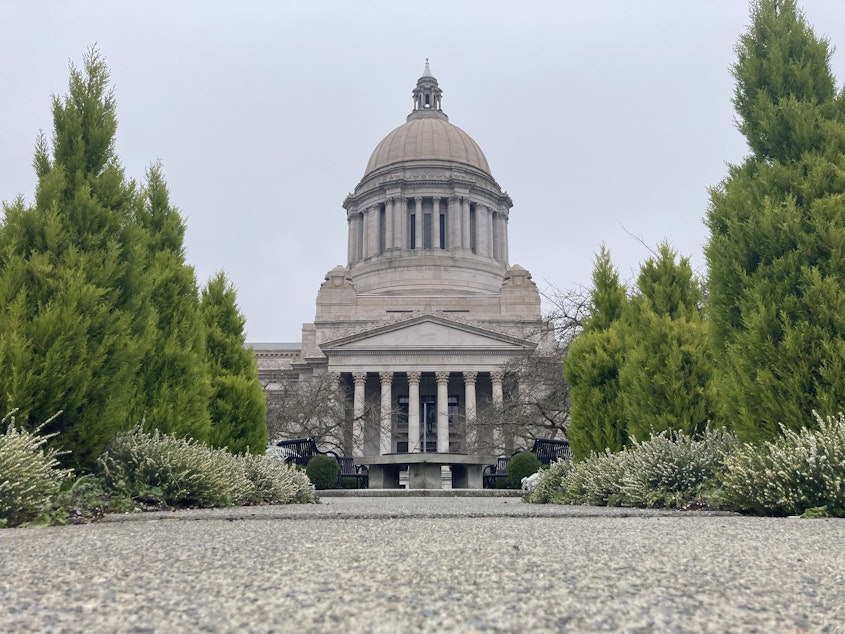Sound it Out: An update on expanded school oversight

At its core, Soundside is about connecting with our listeners and bringing you stories you care about and that impact those of us living here in the Pacific Northwest.
Each week we ask for your thoughts about our stories — where they've succeeded and where they can improve.
This week, we're revisiting a segment with Seattle Times Investigative Reporter Mike Reicher about an investigation into the Northwest School of Innovative Learning, or Northwest SOIL.
Northwest SOIL is a type of specialty private school called a “nonpublic agency,” which receives public funding to educate some of the state’s highest need special education students.
"We found that the schools really employed staff that were underqualified," Reicher told Soundside. "In many cases, they had teaching assistants that were running classrooms for these really complex students with special ed needs, and school districts would go into the private school and find that students basically weren't getting any education ... but there were also allegations of physical abuse that were really heartbreaking to hear. "
Reicher and his colleague Lulu Ramadan reported the story along with ProPublica. Since their story first came out, the state passed SB 5315. This bill expands the oversight role of the Office of the Superintendent of Public Instruction, or OSPI.
The hope is this expansion will allow the state superintendent's office to get clearer information when it comes to complaints or reports of discipline in nonpublic agencies.
Sponsored
Soundside reached out to OSPI officials, but no one from the state office was available to speak with us at the time. But we did later speak with Dr. Tania May, the assistant superintendent of special education.
She explained the groundwork for how OSPI has traditionally gotten involved: When students in a public school in Washington state need specialized education that the local district can’t provide, they can be placed at a nonpublic agency, or NPA, like Northwest SOIL. Even though NPA's are quasi-private schools, the students are still part of the public education system, so OSPI still has responsibility for their care.
"Our office is tasked with making sure that students are receiving their services, that we are monitoring the provision of those services, the use of the funds that the school district or the program receives, and that students are making adequate progress," May said.
That oversight includes reviewing student files, doing interviews with students, families, educators, and service providers.
There are a whole slew of actions the state agency takes when a complaint is filed against a teacher or a school in a public school district.
Sponsored
"We look at the evidence that comes in, and if non-compliance is identified, school districts or programs are required to correct that within one calendar year, and in addition to correcting that compliance, there may be additional required actions that might include additional staff training," May said. "There may need to be revision of policies, practices, or the procedural manuals that they use in their school. There's often a compensatory education component for the students that they either missed services or they didn't make adequate progress. They may be entitled to get to get additional services, and then in some rare cases there may be fiscal sanctions against the school district."
Things are different when complaints are filed at a non-public agency. Currently, responsibility for following up on complaints falls on the school district that originally placed the student at a school like Northwest SOIL. OSPI can’t tell if the complaints or disciplinary reports come from the public school, or the nonpublic agency where the student was placed.
"The mechanism has been that the complaint was filed against the school district that placed the student, because they have responsibility for providing a free and appropriate public education," May said.
With SB 5315 now set to take effect in July, OSPI will get a clearer idea of where complaints are coming from, and it will also be able to directly name an NPA when discipline is needed.
"In the past it was filtered through that placing school district, so it was a little bit harder for us as a state to know when a district reported their data, what of that was specific to the nonpublic agency?" May said. "So now that will be much more clear, including the use of restraint and isolation."
Sponsored
Lastly, OSPI will now collate that data from districts and submit an annual report to the Legislature, which will be publicly available. May said she’s hopeful her office and the Legislature can continue working together to improve oversight.
"I think that it creates opportunities for ongoing improvement of this, which is such an important aspect of our overall system. It's a small number of students in the grand scheme of things. And it's also our students who often have the most intensive needs and are often the most vulnerable," May said. "So, we welcome ongoing improvement in that process."
We always want to hear from you. What did we get right, and what could we improve on? What’s a story you think we should cover? Send us an email or leave us a voicemail at 206-221-3213.





